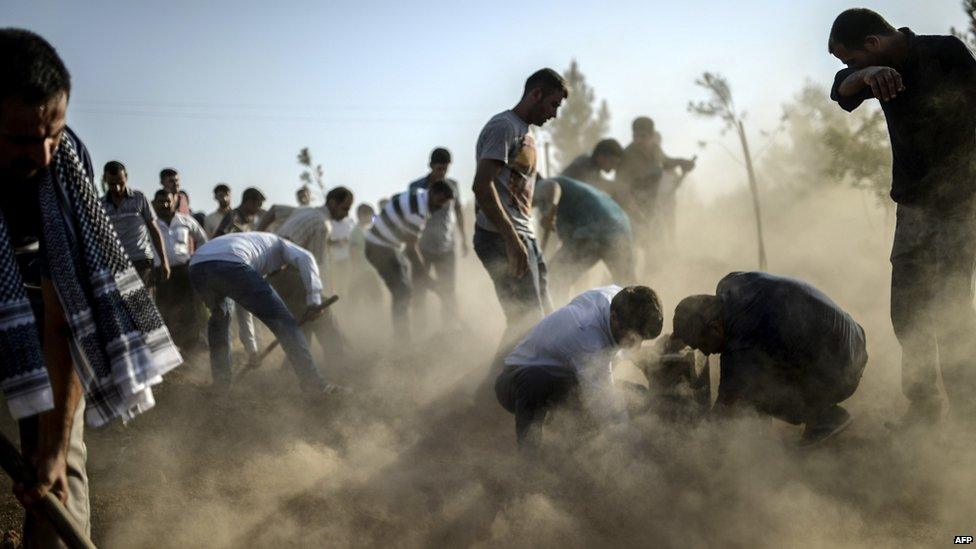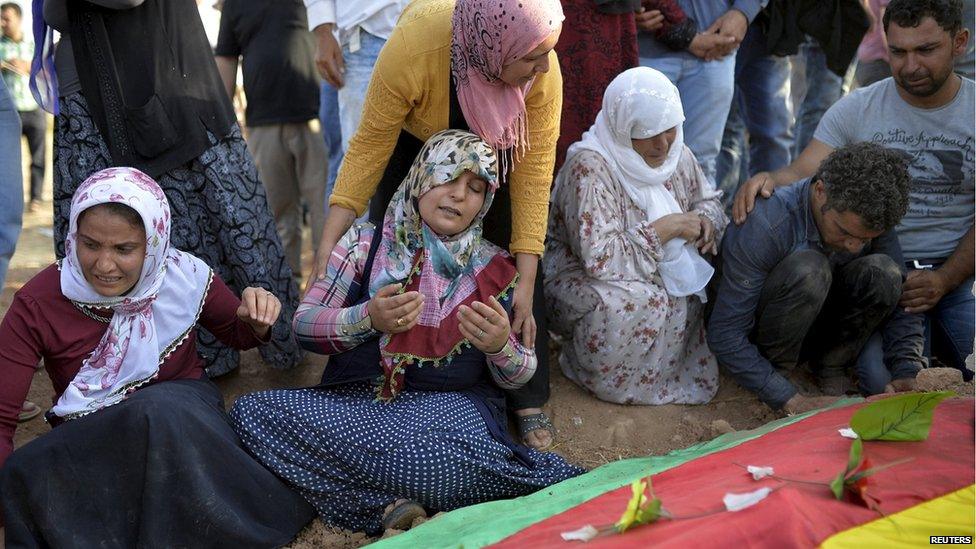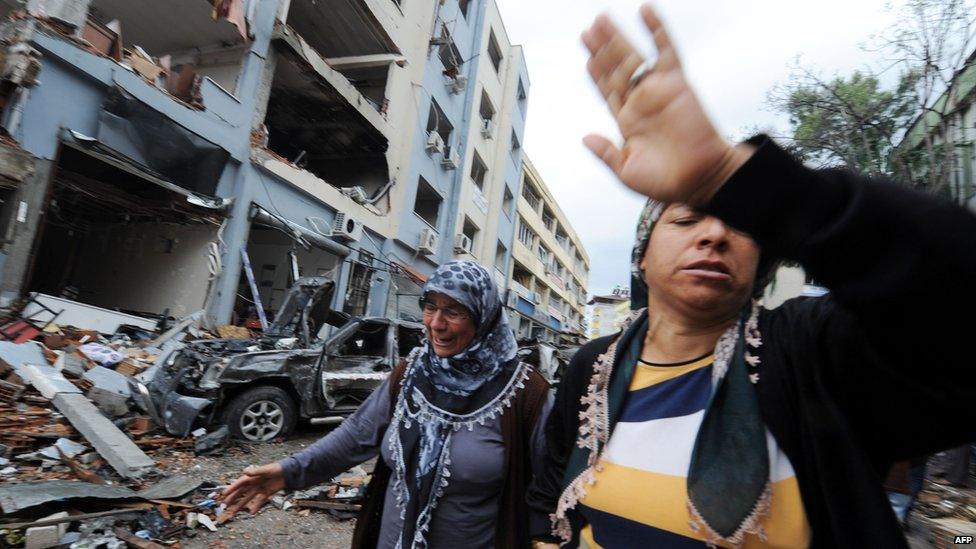Suruc massacre highlights Turkey's Islamic State dilemma
- Published

Mourners bury the dead, amid anger over the Suruc attack
"I'm not well. I will not be well. Don't be well," tweeted Loren Elva, a survivor of the bomb attack in the town of Suruc, on the Turkey-Syria border.
Soon #Iyiolmayacagim ("I will not be well") became a viral hashtag as thousands started tweeting about their anger at the suicide bombing that killed 32 people and injured more than a hundred.
The fact that the dead were young people willing to cross the border to help rebuild war-stricken Kobane struck a strong chord.
They were left-wing activists, but also a diverse group, drawn from towns across Turkey. Some suggested this was why they were targeted: to create a further sense of terror within the country.
The reaction to the suicide bombing was strong - not only on social media but also on the streets. In over 10 cities, protests were held by thousands of people.
Some protesters chanted slogans accusing the governing AKP of not doing enough against the threat from the group calling itself Islamic State (IS).
Change of tactics?
The accusations came despite the fact that the government was quick to condemn the attack and point the finger at possible IS involvement.
Recently, operations were held in several cities across Turkey against IS recruiters and suspected would-be foreign jihadists. Just over a week ago, almost 30 people were detained.
Some argue that such operations and the increasing military presence along the Syria border could have led IS to change tactics and decide to strike in Turkish territory.

The victims of the Suruc bombing were mostly young activists
However, opposition figures say the government's main concern is not the IS threat but the increasingly powerful Kurdish presence in the north of Syria.
Some pro-government papers recently came out with headlines suggesting that the Kurdish militias in Syria were more dangerous than IS.
Critics of the government are also concerned by a recent report that alleged Turkish intelligence agency trucks were carrying weapons to Syrian Islamist rebels across the border.
President Recep Tayyip Erdogan has called the report "fabricated" and sued the journalist and the paper for publishing the story.
Unresolved attacks
One opposition figure has hinted at the possible involvement of intelligence services in the Suruc attack.
Figen Yuksekdag, a leader of the pro-Kurdish HDP party, said: "No force can act in the Suruc area without the knowledge of the state or the MIT (National Intelligence Organisation)."
It has also been suggested that Suruc was particularly targeted as it was the main supply route for Kurdish militias fighting against IS in Kobane.

Some suspect Islamic State was behind a bomb attack in the Turkish town of Reyhanli in 2013
Many fear the Suruc massacre could be a turning point for Turkey: a sign that the Syrian war is spilling over the border. Many others argue though that the war has already spilled over.
They claim IS could have been involved in previous unresolved attacks, such as the Reyhanli massacre in 2013 - when more than 50 people were killed in two simultaneous explosions - or the bombing of an HDP election rally in Diyarbakır last month.
IS has not claimed responsibility for any of these attacks.
Prime Minister Ahmet Davutoglu has promised further security measures along the border with Syria, after the Suruc bombing.
Targeting IS militants could trigger further attacks in the country. Not targeting them could fuel the opposition's accusations of suspected links between the government and the IS.
Turkey's government, it seems, faces a dilemma.